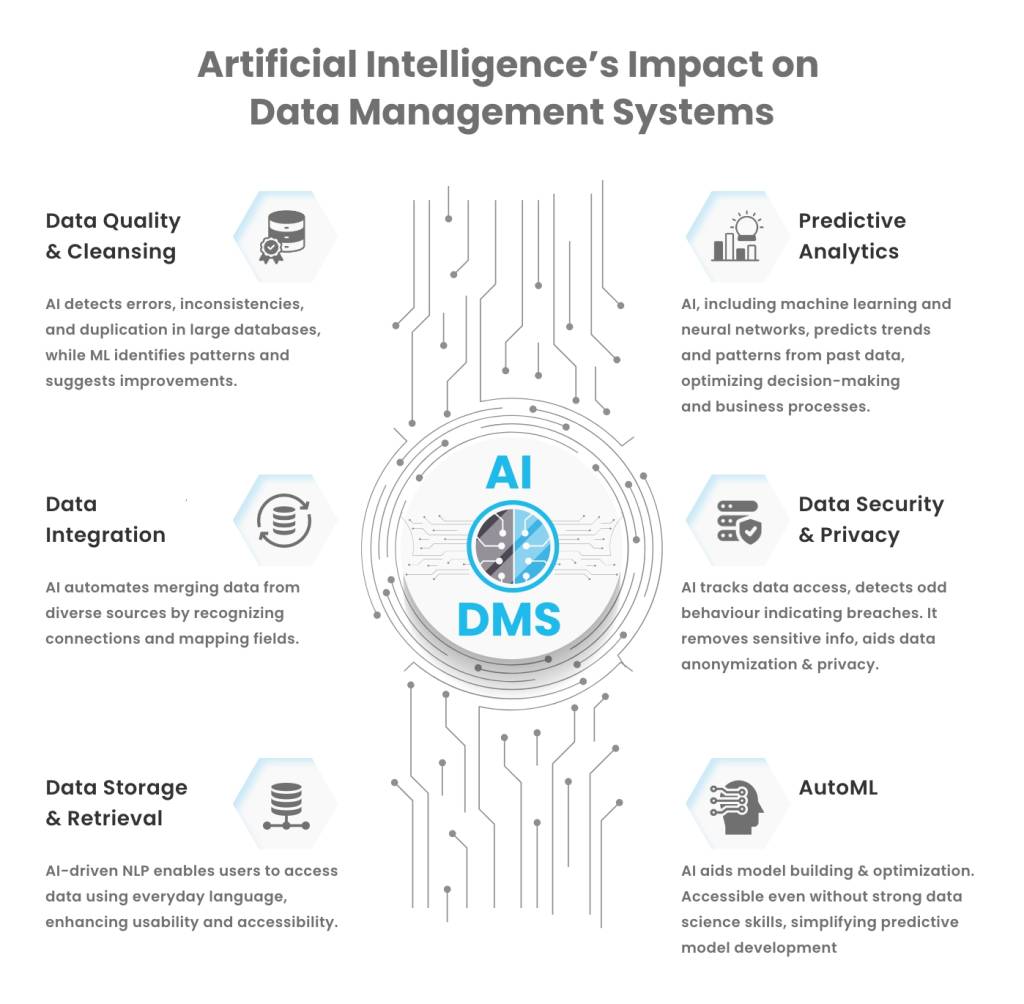Modern Data Management Systems (DMS) significantly benefit from artificial intelligence (AI) by boosting numerous elements of data storage, retrieval, analysis, and decision-making.
Over the years, Fabitcorp has developed a versatile expertise in both off-the-shelf and custom solutions for data management across various industries. This dual capability can provide significant advantages to your clients.
As it relates to data management systems, AI plays the following crucial roles:

Data Quality and Cleansing:
In huge databases, AI systems can automatically find and remove errors, inconsistencies, and duplication. Machine learning methods can spot patterns in data and offer suggestions for how to enhance its quality.
Data Integration:
By recognising connections and mapping data fields, artificial intelligence (AI) can automate the integration of data from many sources. The process of merging data from diverse systems and sources is streamlined as a result.
Data Storage and Retrieval:
Natural language processing (NLP), an AI-powered approach, can allow users to query and obtain data using simple language, improving the usability and intuitiveness of data access.
Predictive Analytics:
Future trends, patterns, and results can be predicted using past data analysis using AI techniques like machine learning and neural networks. Making educated decisions and streamlining business operations can both benefit from this.
Data Security and Privacy:
AI can track how data is accessed and spot unusual behaviour that can point to a security violation. By removing sensitive information, it can also aid in data anonymization and privacy protection.
AutoML (Automated Machine Learning):
Even those without strong data science skills can use AI to help construct and optimise machine learning models. This makes the process of developing predictive models more accessible.
Keep in mind that the particulars of maintaining and governing data depend on your sector, the types of data you handle, and the legislative framework you work in. Effective data management requires adjusting your strategy to your organization’s particular requirements.
In essence, AI automates, enhances, and simplifies many processes of data management, from data ingestion and storage through analysis and decision-making. It enables enterprises to realise the value of their data and make better decisions in a world that is increasingly data-driven
